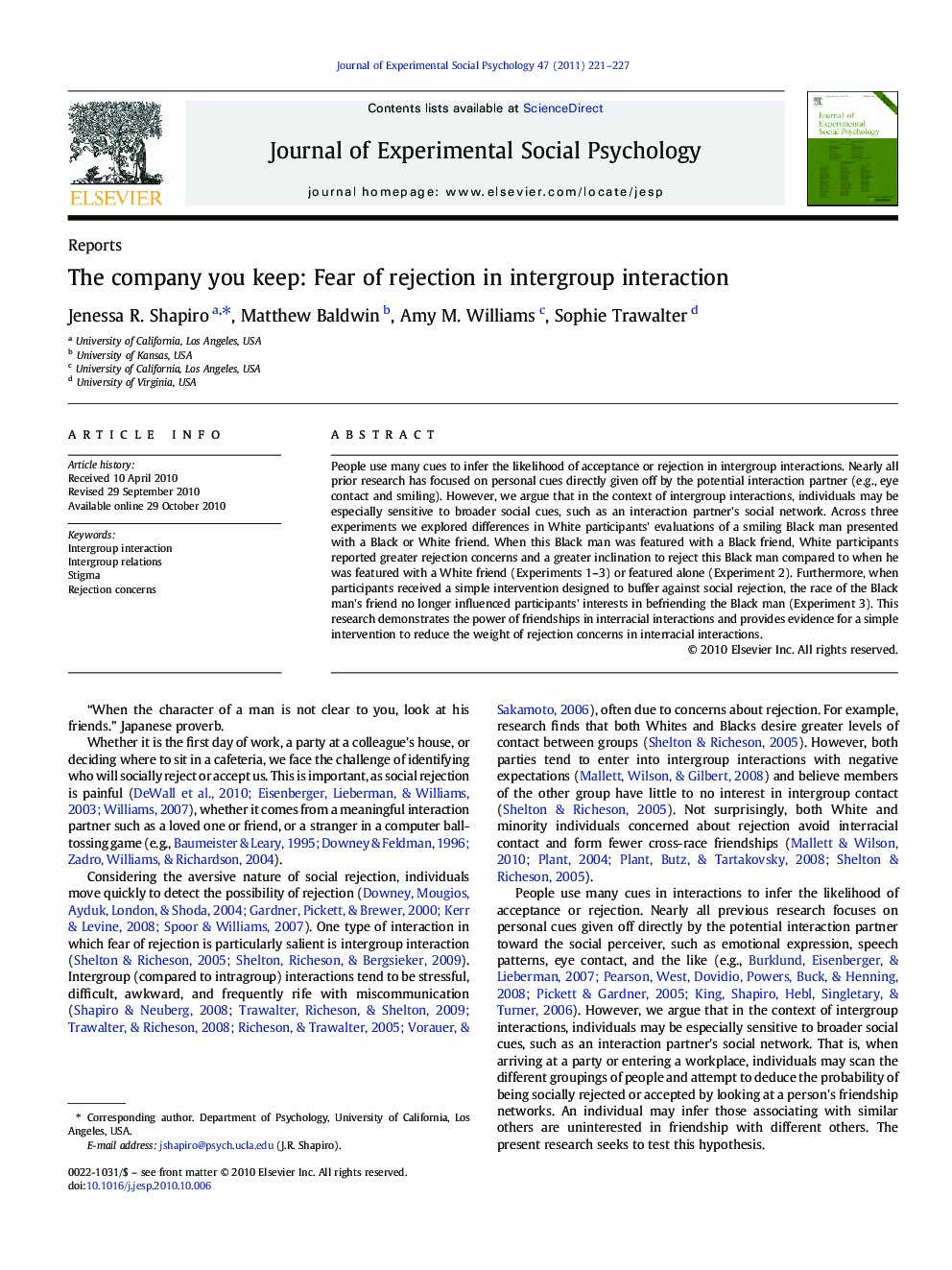| Article ID | Journal | Published Year | Pages | File Type |
|---|---|---|---|---|
| 948348 | Journal of Experimental Social Psychology | 2011 | 7 Pages |
People use many cues to infer the likelihood of acceptance or rejection in intergroup interactions. Nearly all prior research has focused on personal cues directly given off by the potential interaction partner (e.g., eye contact and smiling). However, we argue that in the context of intergroup interactions, individuals may be especially sensitive to broader social cues, such as an interaction partner's social network. Across three experiments we explored differences in White participants' evaluations of a smiling Black man presented with a Black or White friend. When this Black man was featured with a Black friend, White participants reported greater rejection concerns and a greater inclination to reject this Black man compared to when he was featured with a White friend (Experiments 1–3) or featured alone (Experiment 2). Furthermore, when participants received a simple intervention designed to buffer against social rejection, the race of the Black man's friend no longer influenced participants' interests in befriending the Black man (Experiment 3). This research demonstrates the power of friendships in interracial interactions and provides evidence for a simple intervention to reduce the weight of rejection concerns in interracial interactions.
